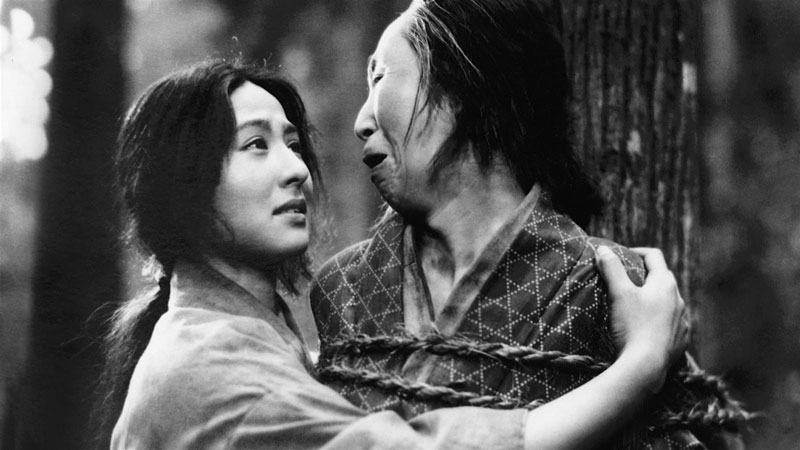
Film Season – Focus on Mizoguchi Kenji: Sanshō Dayū
- 9 & 19 June 2024
- 9 June: 15:00-17:00, 19 June: 18:00-20:00
- The Hall, Japan House London, 101-111 Kensington High Street, London, W8 5SA
- https://www.japanhouselondon.uk/whats-on/film-season-focus-on-mizoguchi-kenji-sansho-dayu/
- +44 (0)20 7932 7100
- info@japanhouselondon.uk
- Tweet
SanshōDayūis Mizoguchi’s eighty-first film and winner of the Silver Lion for Best Direction at the 15th Venice International Film Festival. It is one of his exceptional historical masterpieces from the later part of his career, ranking alongside Life of Oharu (1952) and Ugetsu(1953).
As the finale of our series of film screenings highlighting Mizoguchi’s late 1950s works, Japan House London is proud to offer two free screenings of this monumental chronicle of human cruelty, widely regarded as his greatest achievement.
Most of his mature works,SanshōDayūis based on a literary source. The original story dates back centuries, and had been told in various versions in oral and written form. Mizoguchi’s version takes its direct inspiration from a short story written in the Taishō Era (1912-26 CE) by the great scholar-novelist Mori Ōgai (1862-1922).
Set in the Heian period (794 – 1185 CE), yet powerfully relevant in the face of the wartime cruelties of the twentieth century, it tells of the vicissitudes endured by an aristocratic family after the father, a liberal governor, is banished. While journeying to find him, his two children become separated from their mother and are sold into slavery. True to his style, Mizoguchi does not idealize the past as a time of lost happiness but instead emphasizes, without romanticizing, the extent of cruelty that lies in the past, and the process of overcoming it.
As in most of Mizoguchi’s film, female sacrifice is a significant element but in this case the story primarily focuses on the bonds between male characters, played not on physical strength but on moral determination. The male protagonist of the story, the young Zushiō, is played with commitment and power by Yoshiaki Hanayagi (1924-78). Yet many viewers find the emotional heart of the film in the iconic performances of Kagawa Kyōko as his sister Anju and Tanaka Kinuyo as their mother.
“Style in SanshōDayū,” critic Robin Wood observes, “is the convincing embodiment of the cinema’s supreme intelligence and sensibility.” The film’s exquisite visual beauty intensifies, rather than undercutting, its outrage at human cruelty and its celebration of human dignity. The director’s technique is at its height in the final scene, one of the most moving endings in world cinema.
The screenings are in Japanese with English subtitles. Duration: approx. 124mins
Please note that this movie is rated PG and is therefore not considered suitable for an audience younger than 8 years old unaccompanied.
Guests who are booked to attend the screening can also enjoy 10% off drinks at The Stand on their way in.
Text written in collaboration with Alexander Jacoby; image ©Kadokawa Corporation 1954., Ltd
*Please note that filming and / or photography may take place at this event. Photos and footage of the event may then be used to promote Japan House London, helping more people to discover what we offer. If you have any concerns, please contact us online or contact a member of the team on site.
Admission Free | Booking Essential
Age rating: please note that this movie is rated PG and is therefore not considered suitable for an audience younger than 8 years old unaccompanied.
